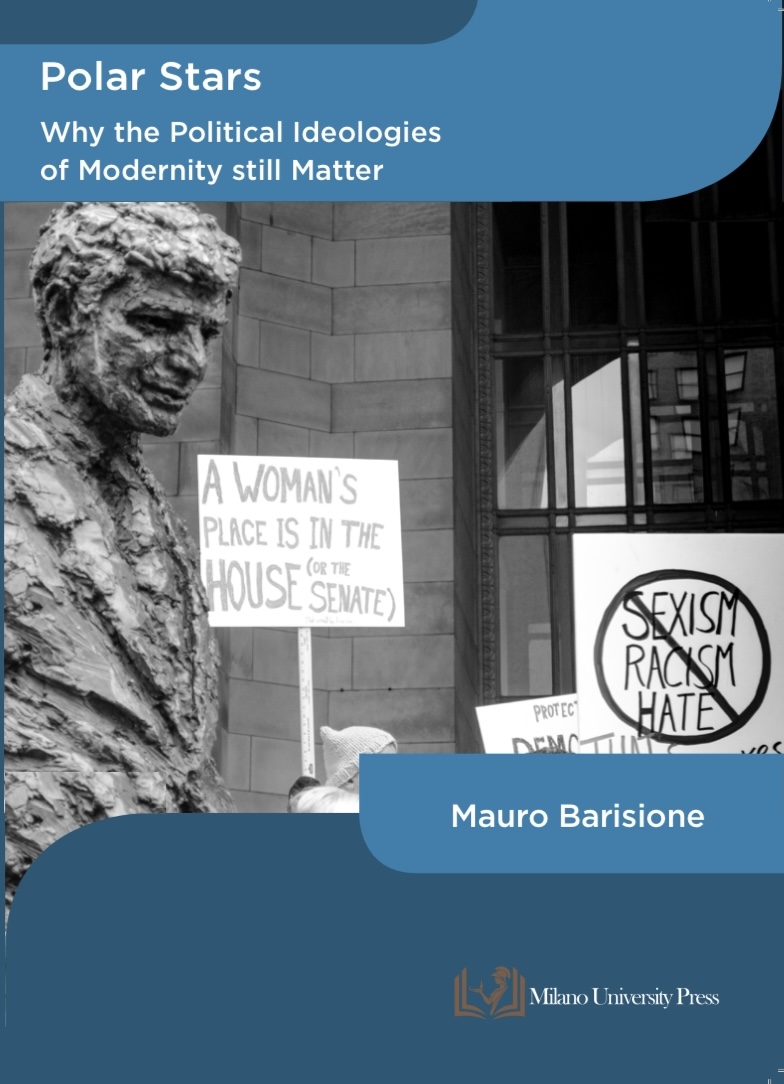Panel: « How Experts Organize and Interact with the Political World? The Political Socializations of Experts »
Chair : Valentin THOMAS (IRISSO – Université Paris-Dauphine, PSL Université)
Second Chair : Jean-Baptiste Devaux (Sciences PO Lyon)
Third Chair : Muriel Surdez (University of Fribourg)
Submission deadline: January 29th 2021
Further information and submission form: https://www.ippapublicpolicy.org/conference/icpp5-barcelona-2021/panel-list/13/panel/how-experts-organize-and-interact-with-the-political-world-the-political-socializations-of-experts/1164
GENERAL OBJECTIVES, RESEARCH QUESTIONS AND SCIENTIFIC RELEVANCE
This panel focuses on « experts », i.e. actors mandated to participate in the design of public policies in the name of their specialized knowledge (Robert 2010). These groups of policymakers are often approached by addressing the links between the professions or intellectual traditions they represent and the institutions in charge of public policies. These approaches discuss fundamental divisions such as expert/ laymen, science/politics, risk assessment/risk management. By contrast, this panel aims to shift the perspective. It grasps the expert’s stance by questioning their political socializations, which has so far been insufficiently examined, especially by political scientists specialized in public policies studies. When they take on their role, experts confront themselves with objects identified as political, i.e. State, markets, political parties, public problems, instruments of public policies, etc. (Brint, 1996, Lebaron, 2008). It is therefore relevant to pay more attention to the ways in which they learnt to 1) perceive and interact with these political objects ; 2) to establish a boundary between political and non-political issues.
In short, the aim of the panel is to take the experts out of the specificity of their technical activities in order to approach them as ordinary and politicized actors who contribute to produce and legitimize the social and political order.
It is as depositories of knowledge legitimized by a specific background – typically a professional experience – that experts are mandated by political actors. Traditionally, work in political science devoted to expertise thus addresses the groups of experts through this mandate. On the one hand, it highlights the way in which expert knowledge is produced, selected, and affects the governance of public problems (Stampnitzky 2013; Demortain 2020). On the other hand, it sheds light on the socio-professional identity of the actors involved in public decision-making. Some researchers have questioned the professional trajectories of experts, as those working in think tanks (Medvetz 2014). Other work examines the legitimization of public decision making. It highlights the growing role of the government-dedicated sciences in the production of public action (Ihl, Déloye, and Joignant 2013). More recently, scholars have also questioned the loss of legitimacy of the specialized knowledge on which the authority of experts is based (Eyal 2019) to emphasize the importance of their networks and their alliances. All in all, this work tends to reduce experts to their « technical » skills or to the specialized knowledge for which their assessment is required.
This panel, instead, explores how experts learn and update the cognitive frames with which they « organize the political world » (Conover and Feldman 1984; Sigel 1989) and how they assimilate and activate certain visions of the social and political order available at a given time (Duchesne and Haegel 2004). For example, some researches addressed this question regarding senior officials in the French administration who designed immigration policies (Laurens 2009). Other researchers have studied the primary and secondary political socializations of people in the engineering profession, retracing the process which leads these professionals to perceive themself as having a « scientific », « objective » and “neutral” way of seeing political issues (Sainsaulieu, Surdez, and Zufferey 2019). The panel’s ambition is to open this research perspective to the different groups of experts appointed in the construction of public policies.
CALL FOR PAPERS
This panel will bring together authors interested in the politicization of experts committed to the production of public policies. For example, how do economists at the International Monetary Fund (IMF) or at the European Central Bank (ECB), conceive and have learnt to conceive the role and legitimacy of the State, private economic actors, social movements or of their own institutions? How do the scientists and physicians of the World Health Organization (WHO) or national health agencies deal with the tension between individual and collective responsibilities in understanding (and acting on) pandemic phenomena? What attitudes do toxicologists at the European Chemical Agency (ECHA) have towards « technical progress », economic productivity, ecology, etc.?
Paper submissions should draw on empirical materials that will be specified. They will conduct empirical studies that highlight the social trajectories, lifestyles and political subjectivities of the experts, specifying how they contribute to the panel’s questions. They may focus on groups of experts appointed in a commission or part of a more flexible national or international network. They may also focus on a single actor. The panel is open to a variety of methodological perspectives, technique and material. For instance, papers can draw on interviews, archives, observations or questionnaires and process these data in various ways, be it qualitative or quantitative.
We suggest four lines of research that can be mixed or explored separately:
- Addressing the primary, secondary and professional political socializations of experts allows us to question various ways to grasp political objets. An interesting approach could be to revisit the process of expertise as a sequence structured by the long-term process of political socialization,be it shaped by explicit activist activities or not. From this perspective, the experts’ careers have to be connected with their social, professional and political trajectories.
- Papers could address the way in which the actors mandated as experts apprehend the social, institutional and political order as « ordinary citizens »: vote, interaction to public administrations (taxes, welfare system, transport, police, army, etc.), social distance or proximity to political arenas and professional politicians, etc.
- Papers could address expertise as a product of ordinary social practices and relationships. We wish to question the way in which experts’ positions and activities structure and are structured by their lifestyles (everyday experiences shaped by class, gender and race reality, by family relationships, by recreational or cultural activities). These elements indicate positions in the social space that are often hidden by the institutional dimension of the expert’s mandate.
- The sociology of the professions has shown the links between certain groups of experts and certain areas of public policy. It could be interesting to ask whether or not these various sectors produce different forms of political socialization. Conversely, one might also ask how struggles between groups of experts for involvement in the same area of public policy affects the political socialization of actors.
Bibliography:
Brint, Steven. 1996. In the Age of Experts. Princeton: Princeton University Press.
Conover, Pamela Johnston, and Stanley Feldman. 1984. ‘How People Organize the Political World: A Schematic Model’. American Journal of Political Science 28 (1): 95–126.Demortain, David. 2020. The Science of Bureaucracy: Risk Decision-Making and the US Environmental Protection Agency. Cambridge, MA: The MIT Press.
Duchesne, Sophie, and Florence Haegel. 2004. ‘La politisation des discussions, au croisement des logiques de spécialisation et de conflictualisation’. Revue francaise de science politique Vol. 54 (6): 877–909.
Eyal, Gil. 2019. The Crisis of Expertise. 1st Edition. Cambridge, UK ; Medford, MA: Polity.
Ihl, Olivier, Yves Déloye, and Alfredo Joignant, eds. 2013. Gouverner par la science: perspectives comparées. Grenoble: Presses universitaires de Grenoble.
Laurens, Sylvain. 2009. Une politisation feutrée. Paris: Belin.
Lebaron, Frédéric. 2008. Central Bankers in the contemporary global field of power: a “social space” approach. The Sociological Review, 56(1)121-144.
Lefébure, Pierre. 2009. ‘Les rapports ordinaires à la politique’. In Nouveau manuel de science politique, by Bernard Lacroix, Antonin Cohen, and Philippe Riutort, 9–20. La Découverte.
Medvetz, Thomas. 2014. Think Tanks in America. Illustrated Edition. Chicago, Ill.: University of Chicago Press.
Michel, Hélène (dir.). 2006. Lobbyistes et lobbying de l’Union européenne : Trajectoires, formations et pratiques des représentants d’intérêts. Strasbourg: Presses universitaires de Strasbourg.
Robert, Cécile. 2010. Chapitre 11 : Expertise et action publique. Presses de Sciences Po (P.F.N.S.P.).
Sainsaulieu, Ivan, Muriel Surdez, and Éric Zufferey. 2019. ‘Parcours de socialisation politique d’ingénieurs au travail’. Revue francaise de science politique Vol. 69 (3): 439–59.
Sigel, Roberta S., ed. 1989. Political Learning in Adulthood: A Sourcebook of Theory and Research. 1st Edition. Chicago: University of Chicago Press.
Stampnitzky, Lisa. 2013. Disciplining Terror. How Experts Invented ‘Terrorism’. New York: Campbridge University Press.



